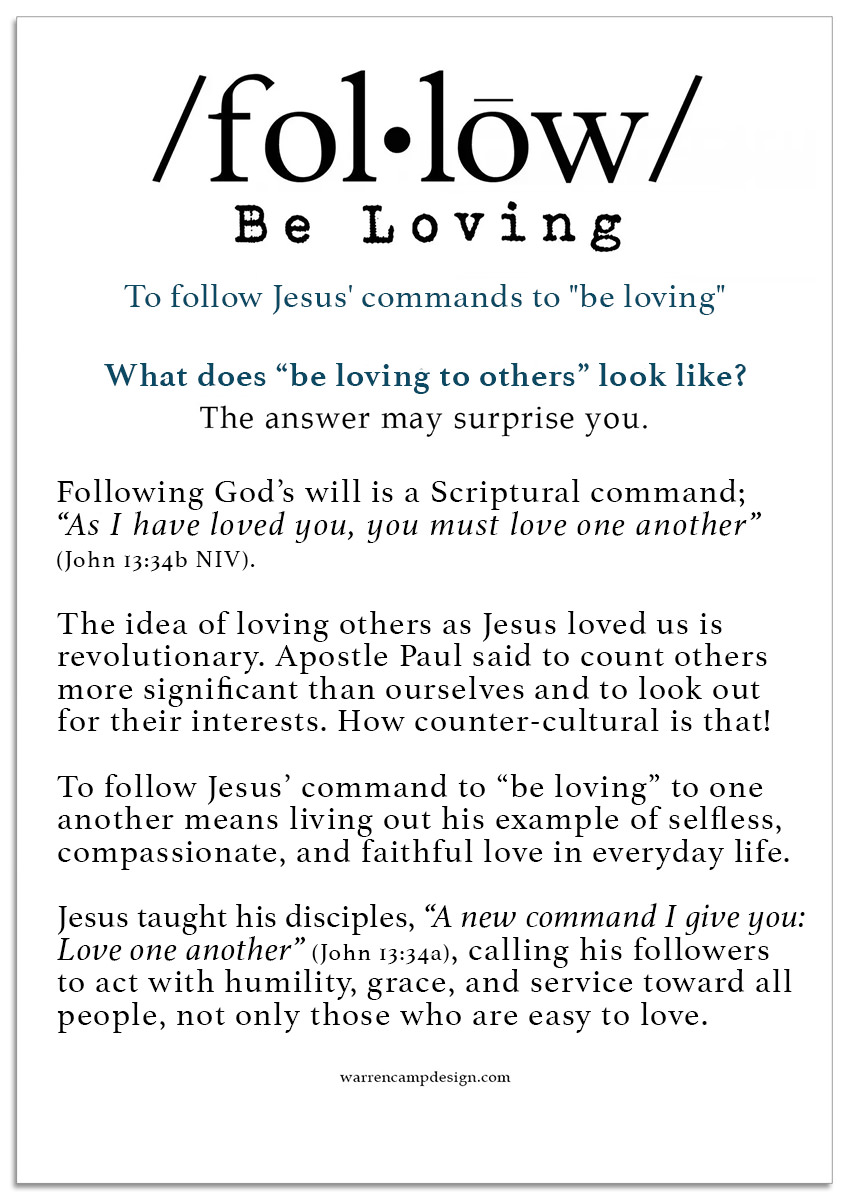
Ephesians 6:5–9 . . .
“Slaves and Masters, Employees and Employers”
Up to this point in Paul’s epistle to the Ephesian church body, the Holy Spirit has addressed two groups: (1) husbands and wives [5:22–27; 28–33] and (2) parents and children [6:1–4]. Now he’ll introduce a third group: masters and slaves. Verses 5 through 8 present the role of slaves while v. 9 focuses on the relationship of masters to their slaves.
In vv. 5–7, Apostle Paul highlights several characteristics that a slave was to have toward his human master: He was to respectfully obey his earthly master but always with an eye to obeying Christ the real master. He was also to approach his master with esteem, never being deceitful to him, but striving to work for the master the same way he’d work for Jesus [v. 5]. His service was to be consistent, while adhering to right motives [v. 6]. And he ought to have a compassionate, benevolent frame of mind toward his master [v. 7].
Today we come to a passage which, on the surface, seems to let all of us off the hook. After all, how many of us own slaves? Who among us is a slave? Nevertheless, Paul’s teaching application is much more broad than merely slaves and masters. Our text applies to all Christians in a variety of ways.
Paul Orders Slaves/Employees to Be Obedient (6:5–6)
Paul now turns to the role that slaves had with their masters. He’s telling the slaves of his day (or servants/workers/employees today) how to walk in the light by working as servants of Jesus.
Slavery was a predominant social institution in the first century (with ±sixty million slaves). The abuse of slaves by masters was rampant. Masters bought and sold slaves as though they were shopping in a market, using slaves as if they were animals. However, Christianity introduced the idea that masters and slaves — in God’s eyes — were equals (vv. 8–9). That was revolutionary to Roman society.
5Slaves, obey your earthly masters with respect and fear, and with sincerity of heart, just as you would obey Christ. 6Obey them not only to win their favor when their eye is on you, but as slaves of Christ, doing the will of God from your heart (Ephesians 6:5–6 NIV).
Paul’s “obey your earthly masters with respect and fear, and with sincerity of heart” order emphasized the fact that God’s purpose wasn’t to change society’s institutions but to directly change the people in those societies. Although we find no condemnation of slavery in the Old and New Testaments, the text in both does restrict the treatment of slaves. In the Bible, the extreme kindness that was commanded to be shown to slaves/servants among the Israelites was often prefaced by a reminder that they, too, were slaves at the hand of the Egyptians. In other words, they were to treat slaves/servants in a way that they wanted to be treated.
The word “sincerity” means honesty, genuineness, integrity. A sincere slave is a person with a solitary purpose of serving his master well and honestly, not serving his master in a double-minded or deceitful way toward. For us servants/workers/employees today, our work should never be done with an ulterior motive. Pretense, hypocrisy, and deceit aren’t Christian values.
The words in v. 5b — “just as you would obey Christ” — are meant change our perspective as workers. Paul is reminding us that our work can and should be done as if we were “working for Jesus,” which should always be our goal! And, in today’s passage, we realize that in three instances the Holy Spirit challenges Christians to be motivated by their relationship to Christ: “as you would obey Christ” (v. 5), “as slaves of Christ” (v. 6), and “as if you were serving the Lord” (v. 7).
Whether we’re currently employed in a 9-to-5 job or working devotedly at serving the Lord Jesus, we must have great respect for these two approaches regarding our “employment”: respect and fear. (1) “respect” means to regard highly the human master by doing what’s expected. In effect, Paul is telling slave servants to respectfully obey their earthly master while always making the effort to obey the real master, Christ Jesus; (2) “fear” relates to the slave’s feeling of terror or anxiety if he might displease his master. The apostle is telling slave servants, “Don’t just do what you need to do to get by, but work heartily, as Christ’s servants, by doing what God wants you to do.
Today we see the master-slave issue in the owner-employee relationship: Employees want fewer hours, more vacation time, and a multitude of financial benefits; employers want greater productivity and increased profits. The fundamental issue between both constituents is what they want for themselves. Greed is at the root of this conflicting relationship. Political leaders offer economic solutions but never solve the greed problem. Man’s prioritization of greed is the essence of this ongoing challenge. On the other hand, God’s plan for the slave-master relationship is preoccupied with authority and submission; employer/master authority isn’t to be based on one’s essential superiority over their employees/slaves; neither does God give employers/masters authority without limits.
When Paul adds, “Obey them not only to win their favor when their eye is on you” (v. 6a), he’s imploring slaves/employees/servants/us to not work only when the boss is looking — so as to gain his favor — but with an attitude in keeping with God’s good and righteous will. And the phrase “as slaves of Christ” (v. 6b) means that all our work should intentionally be done unto the Lord, not man. Charles Spurgeon (1834–1892), nicknamed “The Prince of Preachers,” spoke these words in one of his 3,500 sermons: “Grace makes us the servants of God while still we are the servants of men: It enables us to do the business of heaven while we attend to the business of earth; it sanctifies the common duties of life by showing us how to perform them in the light of heaven.”
Finally, v. 6c’s “doing the will of God” brings our attention to the Greek culture in which manual labor was despised and the goal of becoming successful was to get to the point where you never had to do any work. This isn’t how things work in God’s kingdom. It’s there that hard work and manual labor are honorable.
His Rewards I Await (6:7–8)
One’s efforts “as if you were serving the Lord” (v. 7) are intended to develop a wholehearted approach to service in general such that it’s no longer drudgery but an opportunity to show love for the Lord. Paul reminds his readers that employees should serve their boss “wholeheartedly.” An employee who believes in Jesus Christ should see his or her effort, not so much as providing responsible service to the employer but rather to Christ.
7Serve wholeheartedly, as if you were serving the Lord, not people, 8because you know that the Lord will reward each one for whatever good they do, whether they are slave or free (Ephesians 6:7–8 NIV).
Employers should apply those same principles toward their employees. Dehumanizing, demeaning work that degrades the employee, are not to be used. There should be no favoritism. The "master" needs always to remember that he has a heavenly "Master."
Paul then reminds his readers (v. 8), whether “slave or free,” of something they know well: Christian service is rewarded, just as unfaithfulness is punished. This biblical principle comes from Christ who said that, on his return, “he will reward each person according to what they have done” (Matt.16:27b). This principle applies even to our work-ethic.
The heavenly reward concept is an interesting one. Clearly it’s not the reward of salvation, since salvation is a gift of God’s grace, allocated through faith. A heavenly reward will certainly be appropriate. The slave shouldn’t expect that the exact deed he’s done to someone else will be done to him. However, the slave/employee can rely on God to act justly.
A Christian employee/servant ought to view his or her service to the employer as if he or she were serving Christ (v. 7). This full, spiritual perspective on life lifts one’s work out of the hopeless drudgery realm, thereby elevating it to the position of sacred service offered to Christ. And the Christian employee/servant must remember that he or she will receive his or her just reward from Christ. Thankfully, the Lord sees all that’s done for him and He is faithful to reward you. Remember and appreciate Jesus’ words that offer us incentive and encouragement: “His master replied, Well done, good and faithful servant! You have been faithful with a few things; I will put you in charge of many things. Come and share in the joy of your Lord!” (Matt. 25:21). We Christian employees/servants await his rewards.
Masters Have a Higher Master in Heaven (6:9)
The first thing we see in this closing verse is quite surprising. Most of us think that in the master-slave relationship, it amounts to being only a matter of slaves having to answer their masters. And that’s what we see in vv. 5–7. But masters/employers aren’t to threaten their slaves/employees. Instead, they’re to treat them well, with honor and respect, recognizing that the Master in heaven is watching them. Being impartial and never impressed with a person’s wealth or position, the Master would judge masters/employers for their treatment of their slaves/employees.
9And masters, treat your slaves in the same way. Do not threaten them, since you know that he who is both their Master and yours is in heaven, and there is no favoritism with him (Ephesians 6:9 NIV).
Paul, in his letter to the church body in Colossae (in Phrygia, Asia Minor: Turkey today), wrote similarly: “Masters, treat your servants with justice and equality, knowing that you also have a Master in heaven” (Colossians 4:1).
As for masters, they must respond toward their servants “in the same way.” This obviously doesn’t mean that the masters are to obey the slaves. What it does mean is that the masters/employers are to take good care of those who work for them, treating slaves/employees with respect, dignity, courtesy, and honesty, making sure that they’re in their corner, representing them. Masters are told to treat their slaves/employees similarly (v. 9a). Just as servants are to work hard and honestly for their masters/employers, so masters are to treat their slaves/employees in a similar fashion.
That said, masters are expected to apply the same principles of Christian concern toward their servants, as demonstrating a spirit of integrity, dedication, and goodwill. They must not “threaten” or bully slaves (v. 9b), realizing that they too are employees of their Master (capital M) in heaven who judges people without regard to wealth or position. Further, Paul reminds his readers that the Master never shows “favoritism” to people (v. 9c) “whether they are slave or free” (v. 8b).
The Christian employer is exhorted herein to “treat your [employees] in the same way,” giving them the same spirit of sincerity and devotion that God requires them to exhibit towards masters/employers (vv. 5–6). The Christian employer must also remember Jesus’ rule that he included in his Sermon on the Mount: “So in everything, do to others what you would have them do to you, for this sums up the Law and the Prophets” (Matt. 7:12). Furthermore, the Christian employer must remember that his or her present position has been assigned to him or her by Christ the Lord, just as Christ has seen fit to assign his servants’/employees’ position to them. The master/employer role is to fulfill and promote the glory of God while serving Christ as one who is accountable to him.
Dr. Charles Stanley’s Daily Devotion — Ephesians 6:5–9
Christians sometimes make the mistake of mentally separating their work life from their spiritual life. This mindset says, “Sunday is the Lord’s day, but the rest of the week is mine.” That’s an unbiblical way to live. God’s Holy Spirit should be involved in everything we do, and we ought to recognize Him as our guide, comforter, and intercessor, no matter where we are. Why would we want to exclude Him from something that takes up a large part of our week?
Serving the Lord on the job means that our workplace is also our ministry site. A job provides money to support the family, but when done faithfully, it becomes far more than simply a means to make a living. Work shouldn’t be seen as drudgery; it’s an opportunity to show love for the Lord. Paul also encouraged the believers in Colossae about rewards to be gained in the master-slave relationship (Col. 3:22–25). For those who serve God and love others on the job, the reward is greater than a paycheck. They are blessed with a ministry — a harvest field for the kingdom, right inside the factory, construction site, or office.
Remember! We’re to follow his numerous commands throughout Scripture to “be loving” by loving one another. Jesus undoubtedly declared that “love for God and neighbor” was the greatest commandments, summing it up with “All the Law and the Prophets hang on these two commandments.” (Matthew 22:37–40).
Apostle Paul’s Personality and Passion on His Missionary Journey in Ephesus
† Watch this video highlighting Paul in Ephesus — created by Our Daily Bread Ministries.
Intro Video: “Ephesians”
† Here’s a superb run-through video of this epistle, created by BibleProject.
- Q. 1 Given that slavery is a social evil, why was Paul content to only regulate it?
- Q. 2 What command did Paul give to slaves/employees? Did he make it fairly? Any exceptions to it?





